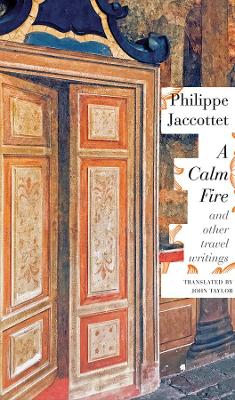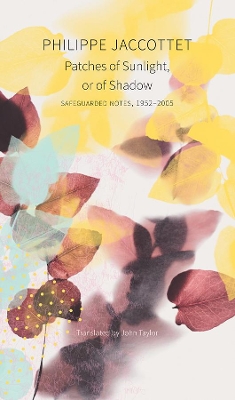Swiss List
2 total works
In these times of heartbreaking violence, clashing religions, and a seemingly never-ending narrative of dichotomy between East and West, wonder at the religion and culture of the Middle East can be in short supply. However, the lyrical and philosophical travel writing in Swiss poet Philippe Jaccottet's Calm Fire rekindles it, lifting us out of our ordinary locales and stories of violent conflict in the Middle East. Jaccottet's poetic descriptions explore the rich cultural worlds of Syria, Lebanon, Egypt, and Israel, giving us uncommon glimpses into countries so often associated with turmoil, death and destruction. Expressing a poet's admiration for the ecstasies of faith and a philosopher's skepticism of these seemingly transformative feelings, Jaccottet dives deep into the religious cultures of the places he visits.
Ultimately, whether in his native Swiss Alps or among the cedars of Lebanon, the same question pervades Philippe Jaccottet's work: How should we live? More than a simple palliative to a depressing news cycle, Calm Fire captures a true sense of place by celebrating and pondering ways of life through the immersive experience of travel.
Ultimately, whether in his native Swiss Alps or among the cedars of Lebanon, the same question pervades Philippe Jaccottet's work: How should we live? More than a simple palliative to a depressing news cycle, Calm Fire captures a true sense of place by celebrating and pondering ways of life through the immersive experience of travel.
Philippe Jaccottet’s newest work follows in some ways the approach of Seedtime, his recent two-volume collection of notebooks. Similarly comprising on-the-spot jottings, philosophical reflections, literary commentary, dream narratives and sundry “notes,” this book nonetheless differs from the preceding volumes in that the Swiss poet includes more personal material than ever before. Drawing on unpublished notebooks from the years 1952–2005, Jacottet offers here passages about his family, the death of his father-in-law and of his mother, his encounters with other major poets—such as René Char, Francis Ponge, Jean Tardieu, and his friends Yves Bonnefoy and André du Bouchet—and his trips abroad, as well as, characteristically, his walks in the countryside around the village of Grignan, in the south of France, where he has lived since 1953. For a poet who has been notoriously discreet about his life, this book offers unexpected glimpses of the private man. Above all, the entries in this notebook show how one of the greatest European poets grapples with the discouraging elements of existence, counterbalancing them by recording fleeting perceptions in which “something else,” almost like a threshold, seems present.

